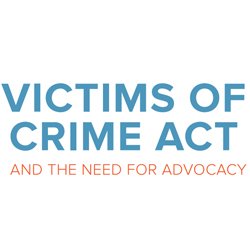Key Federal Laws Can Help To Prevent Sexual Abuse

Sexual assault laws exist to assist survivors to find justice. There are a handful of federal laws women can harness to their benefits to help in their situation.
RAINN, one of the leading anti-sexual violence against women in the US works with some influencers and policymakers to ensure the passage of some major federal laws. They also educate the general public on how these laws work to enhance speedy justice for women who were sexually violated.
You can learn how funds are allocated and protection is established using these federal laws. These are all geared towards preventing sexual violence in its entirety.
Debbie Smith Act
 DNA evidence is vital to crime detection. In sexual violence, it takes further processing to nail an offender. This act helps to facilitate testing and analyzing of the backlog of such DNA evidence. The act provides resources and funding to analyze and process evidence. These are then added to the national database of DNA collection, thus helping the system. The act also ensures that states make provision for reducing the backlogs of untreated samples of DNA.
DNA evidence is vital to crime detection. In sexual violence, it takes further processing to nail an offender. This act helps to facilitate testing and analyzing of the backlog of such DNA evidence. The act provides resources and funding to analyze and process evidence. These are then added to the national database of DNA collection, thus helping the system. The act also ensures that states make provision for reducing the backlogs of untreated samples of DNA.
Clery Act (Jeanne Clery Disclosure of Campus Security Policy and Campus Crime Statistics)
This act requires that universities and colleges give timely and adequate information on crimes perpetrated on or near the campus. It mandates higher transparency about crimes committed on campus including those of sexual violence. This act is applicable to all institutions that receive federal funding without the exception of student’s financial assistance. Colleges must ensure publication of an annual report on security. They should have a fully detailed crime log that is accessible to the public. They should also protect victims confidentiality.

Campus SaVE Act (Campus Sexual Violence Elimination)
Campus SaVE act makes an amendment to the Clery Act to improve on transparency needs for colleges, establish disciplinary procedures and guarantee survivors’ rights.
It also requires education programs from the institutions.
Title IX (Patsy T. Mink Equal Opportunity In Education Act)
 Title IX is popular for its upholding of gender equality.
Title IX is popular for its upholding of gender equality.
Enacted in 1972, the law stipulates that survivors of sexual violence can legally file a suit against their institutions for failure in their responsibility to keep them safe.
It forbids discriminations on the grounds of sex by educational organizations which get funding from the federal government.

SAFER Act (Sexual Assault Forensic Evidence Reporting)
This act gives necessary supports and attention to crime labs by providing the funding to test, audit and cut down on the backlog of evidence from DNA connected to sexual violence cases. This is to facilitate speedy justice to bring offenders to book.
Victims Of Crime Act (VOCA)
With this act, survivors get help to handle cost of surviving sexual violence. VOCA helps victims handle concrete costs of surviving the crime, which includes the medical bills, counseling services, and wages that are lost in the process. Victims can apply for such funds to meet up their expenses.


